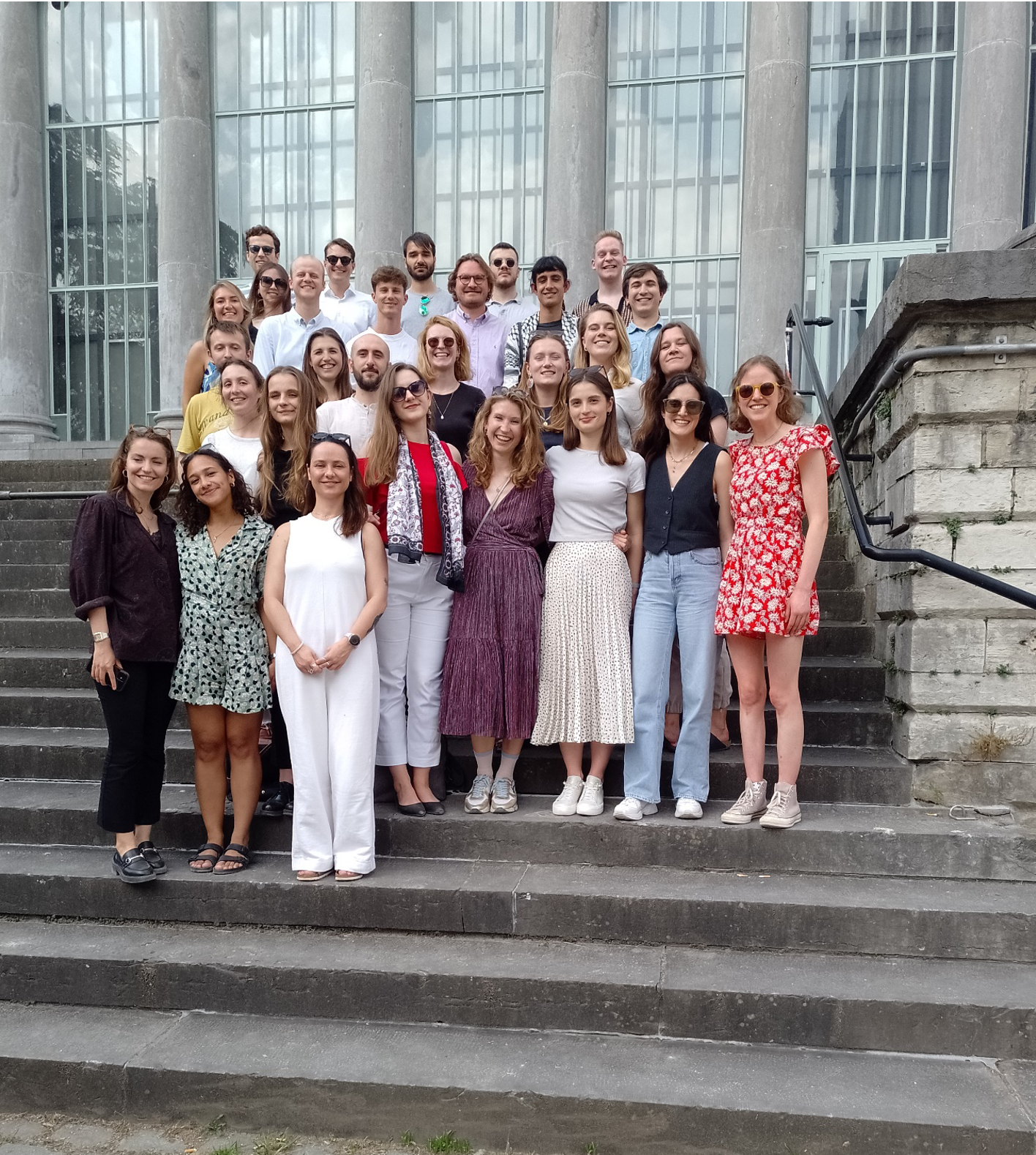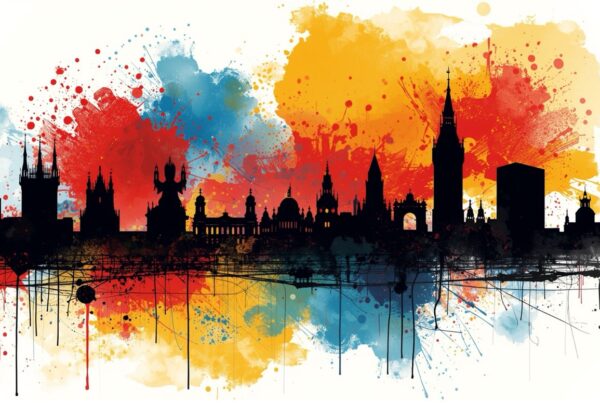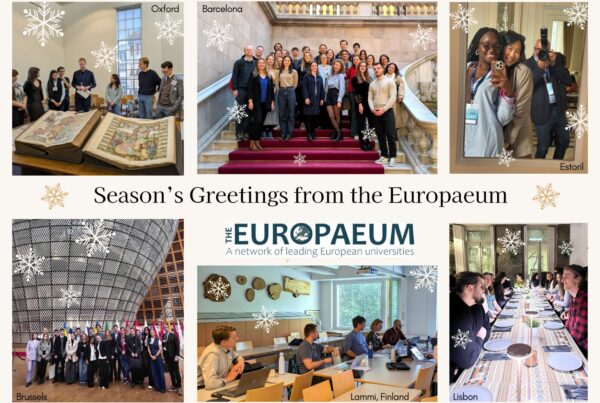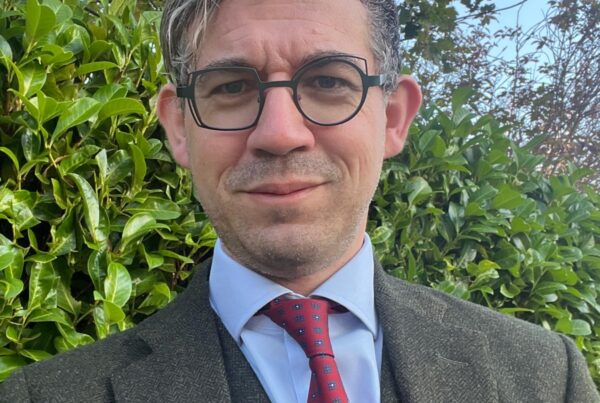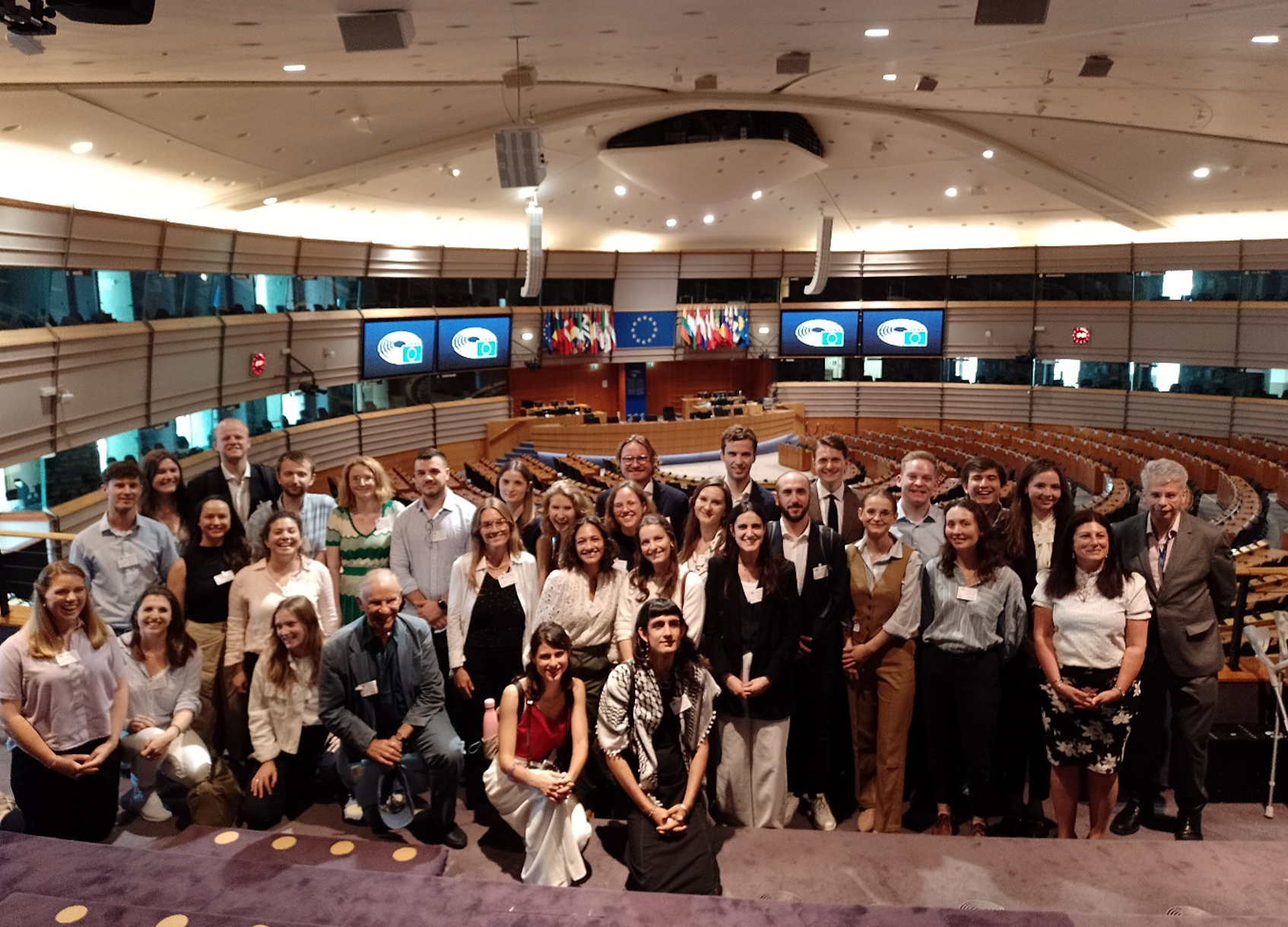
The Europaeum Scholars in Brussels
Brussels | 24 – 26 June 2024
In one of the key weeks for the European Parliament and the European Commission and in the immediate wake of the European Parliamentary elections, the Scholars headed to Brussels. During our time there the accession negotiations with Ukraine opened and EU leaders agreed on whom to designate for the top jobs in the commission.
Our Brussels module exposes the Scholars to the Brussels bubble at the same time as it deepens their understanding both of how various European institutions operate and specific policy areas. With that in mind we were fortunate to visit three quite different organizations during the week. We spent an afternoon at the Foundation for European Progressive Studies, one of the European Political Foundations, hearing their key policy areas (such as the Green Deal and Rule of Law). FEPS’s President Maria Joao Rodrigues explained their mission and how they operate, and shared some thoughts on what we might see over the next 5 years.
Our second day was split between the European Parliament and the European Commission. In the morning we were hosted by EPRS, members of whom talked us through the role of EPRS in the policy-making process, the internal dynamics of the parliament, and the Immigration Pact and gave us a tour of the hemicycle. After lunch we headed to the Commission, where we learned about the white paper on connectivity, the work of DG INTPA in democracy support, and what to expect from the Ukrainian negotiations on membership. In addition to these visits, across the week we heard from a senior analyst at the EU Disinfo lab about their work tackling the worrying (and increasing) disinfo efforts in Europe and from the head of biodiversity policy at the Institute for European Environmental Policy on current initiatives to improve biodiversity across Europe and to monitor EU initiatives.
After two days of intense conversations about various policy areas, the Scholars moved onto equally intensive discussions about their group projects. Since they met in Oxford in March, they each drafted a 1-2 page proposal for a policy project that they would like to work on that they believe would help make Europe a better place. They came up with interesting projects that ranged from aiming to provide more equitable urban housing to the effective use of AI in public services to pan-European education and skills certification to industrial decarbonisation. They were split into four groups based on these proposals and over the course of two days debated individual proposals, easily finding that within each group everyone had shared concerns. We look forward to seeing how the projects develop further when we next meet in Budapest in the summer!
